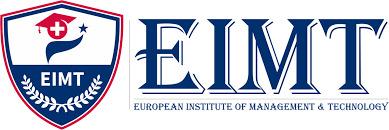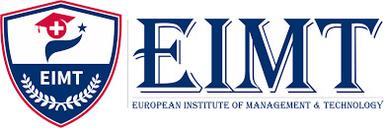Programme Key Points
Earn a fully online Doctorate in Computer Science in just 36 months.
Built for full-time professionals, allowing you to remain employed while pursuing coursework and dissertation work.
One-on-one mentorship by industry-experienced faculty, providing personalized guidance from day one through thesis defence.
Live interactive classes and workshops, supported by a rich mix of synchronous sessions, recorded resources and active peer forums.
No GMAT/GRE requirement — admission is based on your credentials, professional background, research proposal and English proficiency.
Programme Highlights
Accredited by leading bodies
Including EURASHE, ACBSP and QAHE — ensuring your Doctorate holds international credibility and academic standards.
Join a successful global alumni community
Over 1,000 graduates — connect, network and associate with professionals across the globe.
Access scholarships
Up to 30% on tuition fees and learn alongside international peers.
Programme Overview
The Doctorate in Computer Science at EIMT is a fully online, programme meticulously designed for working professionals who are focusing to advance their expertise without interrupting their careers. Pursuing a Doctorate in Computer Science is a strategic next step for those who wants to ascend to leadership positions.This research-intensive programme offers a comprehensive curriculum that delves into advanced topics such as Artificial Intelligence, Cybersecurity, Distributed Systems, and Data Science. Students engage in a blend of live interactive classes, seminars, and workshops, complemented by self-paced study materials, ensuring a flexible yet strenuous academic experience.
A standout feature of the Doctorate in Computer Science programme is its emphasis on applied research. Candidates undertake a dissertation based on real-world projects, allowing them to solve pressing problems in the tech industry. Throughout their journey, students receive personalized mentorship from experienced faculty, supporting both academic and professional growth. The curriculum of this programme has been structured to not only elevate technical proficiency but also cultivate leadership and problem-solving skills, preparing graduates for high-level roles in academics, industry and research institutions.
After completion of this programme, you will be primed for higher management roles such as Chief Technology Officer, Senior Data Scientist or Director of Cybersecurity. These positions provide a solid foundation in the tech industry, offering opportunities to apply your skills in real-world scenarios.

Why Choose this Programme?
Most viewed and all-time top-selling services
Syllabus
36 Months Online Doctorate in Computer Science Programme

The Curriculum is divided into three primary phases—Coursework, Research Lab and Doctoral Thesis—offering a balance of theoretical grounding and applied research.
- Coursework Phase:
The course phase comprises the first semester during which scholars begin with foundational modules in research methodology, qualitative and quantitative techniques, and academic writing. During this stage, students identify their dissertation topic and are assigned a supervisor. This phase includes multiple seminars and academic presentations to prepare candidates for independent research.
- Research Lab Phase:
This phase usually covers both the second and third semesters of study involving in-depth data collection, analysis, and critical evaluation aligned with the chosen research topic. Candidates submit a detailed synopsis, progress reports, and participate in workshops and research colloquiums to refine their research direction.
- Doctoral Thesis Phase (Months 19–36):
The final stage typically spans from the third semester to sixth semester. It focuses on thesis development, review processes, and dissertation submission. This phase also includes committee reviews, feedback incorporation, pre-submission defence, and culminates in a final viva voce. Students who successfully defend their work are awarded the doctorate.
Structured Timeline
Month 1:
- Enrollment invitation and entrance test
- Personal interview with the Department Research Committee (DRC)
Months 2–7:
- Coursework selection and fee submission
- Supervisor/research faculty assignment
- Coursework initiation
Months 8–10:
- Submission of research synopsis (5 copies)
- Research Department Committee (RDC) approval process begins
Months 10–12:
- Progress report submissions (5–6 reports, signed by supervisor)
- Fee submission post-RDC phase
Months 13–33:
- Ongoing research and 6-monthly progress reports
- Thesis drafting, committee reviews
- Pre-Submission Defence Committee (PSDC) review
- Thesis submission (5 signed copies)
Months 34–36:
- Final viva voce (oral defence)
- Doctorate awarded upon successful defence
Courses
Doctorate in Computer Science
Tuition Fees
CHF 22,500
Country
Switzerland
Mode of Teaching
Online
Duration
36 Months
Eligibility
- A recognized Master’s (EQF Level 7) in Computer Science or related field.
- Strong academic record (typically GPA 4.0 / 70%+).
- Professional experience is advantageous but not mandatory.
- English proficiency: IELTS ≥ 5.5 or equivalent (waived if previous education was in English).
- No GMAT or GRE needed for standard admission.
Career Opportunities
There are ample opportunities for students completing their Doctorate of Computer Science from EIMT. They can look for senior management or team lead profiles in their current organization or other companies as well.
A Community of 1000+ And Counting
Here's what our students have to say about their programme experience with EuroAmerican Education
EAE Graduates Work With
Blogs and Articles
- Jul 16, 2025
- Technology
AI and Cybersecurity: How Machine Learning is Fighting Cybercrime
- Cyberattacks are more than just spam and malware these days. They are more cunning, faster, and more malevolent than ever before. It is true that hackers are using advanced techniques, such as artificial intelligence, to sneak into systems and steal data without being noticed. In the digital arms race, governments and businesses are lagging behind.


- Jul 15, 2025
- Technology

- Jul 15, 2025
- Technology

- Jul 14, 2025
- Technology







.jpg&w=3840&q=75)





